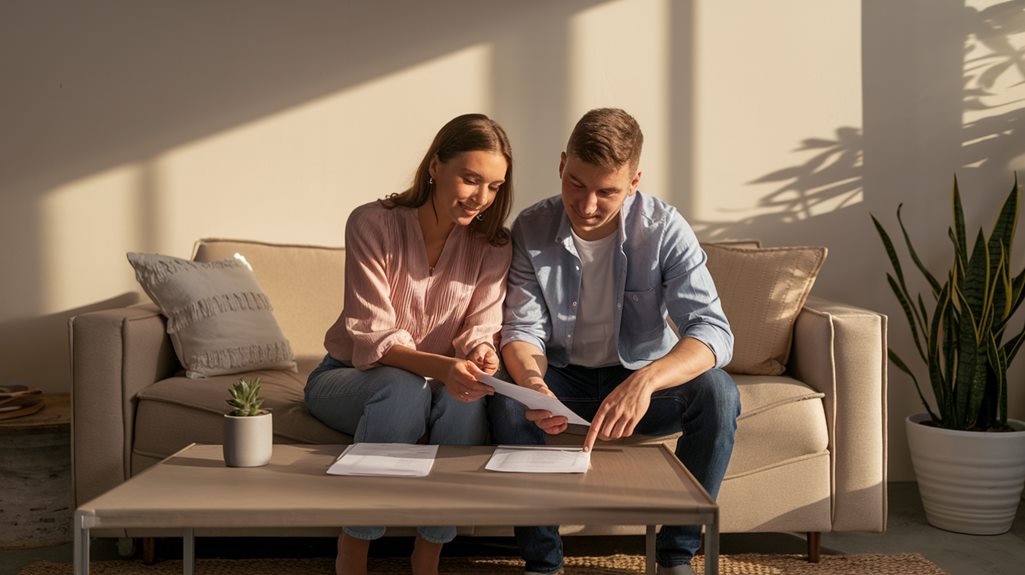First, take a good look at your money. Check what you spend and try to save up for a down payment. Also, it's a good idea to make your credit score better. After that, get a pre-approval for a mortgage. This helps you know how much you can spend on a house.
Next, think about what you want in a home. Where do you want to live? What will you need in the future? Then, start looking for houses. You can learn about different neighborhoods and go to open houses to see what you like.
When you find a house you want, you need to make a good offer. It helps to know what is happening in the market and what the seller wants. After that, check the house carefully to make sure it's in good shape. If you find something that needs fixing, you can use that to ask for better terms.
Finally, when you are ready to buy, read all the papers carefully. Make sure your loan is ready and that everything is clear and legal. If you need more help with any of these steps, there is always someone ready to guide you!
Ready to start building equity in your own Michigan home? Get your personalized home loan quote today.
Assess Your Financial Health

Knowing how your money is doing is super important when you want to buy a home.
First, take a look at what you spend each month. Can you find places to save a little? This will help you save up for a down payment and other costs to buy a house.
Next, check your credit score. This number shows how good you're at paying back money. A good score can help you get better loan deals.
If your score isn't great, try to pay off some of your debts and make sure you pay your bills on time.
Michigan residents, unlock the door to your new home. Request your home loan quote from Treeside Financial today.
Get Pre-Approved for a Mortgage
When you're ready to buy a home, it's super important to get pre-approved for a mortgage. This helps you show sellers that you mean business and helps you know how much you can afford.
First, look at different types of mortgages to see which one is best for you. Your credit score is key; it helps decide if you can get a loan and what your interest rate will be.
Here's what to do:
- Check your credit score: Make sure it's correct and strong enough for good loan terms.
- Look into mortgage types: Think about fixed-rate, adjustable-rate, and government-backed loans.
- Gather your papers: Get your pay stubs, tax papers, and bank statements ready.
- Talk to lenders: They can help you find the right mortgage for your needs.
Getting pre-approved is a big step toward owning your dream home!
Define Your Home Criteria

When it's time to think about your new home, start by thinking about your life and what you might need in the future.
What kind of neighborhood do you like? Do you prefer busy city life or quiet suburbs? The right neighborhood is important so you can feel happy and comfortable in your home.
You might be closer to buying your home than you think
Take our 2-minute home buyer readiness quiz to see how prepared you really are – no credit check required.

Also, think about what you might need later on. Will you need more rooms for a bigger family? Do you want to be close to good schools?
Don't forget to think about how your home can be sold later. Pick a place that may grow in value so you can protect your money.
Look for nearby parks, shops, and how easy it's to get to work or fun places. Every choice you make now will help you feel happy and connected to your new community.
Start House Hunting
Once you know what you want in a home and a neighborhood, it's time to start the fun adventure of house hunting!
First, look into different neighborhoods to make sure they fit your lifestyle and dreams. Check out online listings to see what homes are available.
Here's a simple plan to help you:
- Narrow Down Choices: Look for homes that are within your budget and in the area you like.
- Visit Open Houses: Walk through the homes to see how they feel and to meet some neighbors.
- Check Nearby Places: Make sure there are schools, parks, and shops close by.
- Talk to Locals: Chat with people who live in the area to learn more about it.
Happy house hunting!
Make an Offer

Making an offer on a house can be exciting but also tricky. First, think about how much money you can spend and what the house is worth. Look at other houses that have sold nearby to help you decide how much to offer. This shows the seller that you know what you're talking about.
Try to understand why the seller wants to sell. Do they need to move fast, or are they hoping for a higher price? Make your offer based on what they might want.
When you talk to the seller, be friendly and show that you really like the house. A good offer can help you stand out and get the home you want, even if there are other people interested.
Conduct Home Inspections
When you look at a house, it's really important to check it carefully. This helps you find any problems and see how good the house is overall.
You want to make sure there are no surprises that could cost a lot of money later. If you hire a professional inspector, they can help you understand what's going on with the house.
This way, you can make smart choices and talk about the price better.
Identify Potential Issues
Before you sign the papers to buy a house, it's really important to have a home inspection. This helps you find any hidden problems that could turn your dream home into a big headache.
If you spot issues early, you can make smart choices and maybe even negotiate for a better deal. Here are some key things to check:
- House Structure: Look for cracks or shifts in the foundation. These could mean there are serious problems.
- Roof Condition: Check for missing shingles or leaks. Water damage can be very expensive to fix.
- Electricity: Make sure the wiring and outlets are safe. This helps keep you safe from fires.
- Plumbing: Look for leaks or old pipes. These can cause big repair bills later.
When you hire a good inspector, you're making sure you're not just buying a house, but a safe and happy place to live.
Evaluate Property Condition
Before you buy a home, it's really important to check how good the house is. A home inspection can help protect your money and make sure the house is worth what the seller is asking for. This step helps you see if the house needs any fixes and if it will cost a lot to make it nice.
You should get a professional inspector to look at different parts of the house like the roof, plumbing, and electrical systems. Here's a simple checklist to think about:
| What to Check | Why It Matters | What Could Be Wrong |
|---|---|---|
| Roof | Keeps rain and snow out | Leaks or damage |
| Foundation | Holds the house up | Cracks or sinking |
| Plumbing | Moves water in and out | Leaks or old pipes |
| Electrical | Keeps things safe and working | Old wiring |
| HVAC | Keeps the house warm or cool | Doesn't work well |
Close the Deal

When you're ready to buy your first home, it's important to finish the purchase agreement carefully.
Make sure your loan is approved and ready to go.
Check the property inspection to ensure everything is good, so there are no surprises when you sign.
Finalize Purchase Agreement
Getting your dream home is exciting! As you finish the purchase agreement, it's important to make sure everything goes smoothly. Here's how to do it:
- Be a Smart Negotiator: Use what you know about the market to ask for good deals, like a better price or fixes for any problems.
- Check the Agreement Carefully: Make sure the agreement includes important things like home inspections, appraisals, and getting financing. This helps protect you and gives you some options.
- Pick a Closing Date: Talk with everyone involved to choose a date that works for you. This will help make the move to your new home easy.
- Get Help from a Lawyer: A real estate lawyer can help make sure that the agreement is written in a way that you understand and protects you from any issues.
As you wrap things up, remember—you're not just buying a house; you're becoming part of a new community!
Secure Financing Approval
Getting your financing approved is an important step in buying your new home. First, check your credit score. This score helps decide what kind of mortgage you can get and what interest rates you'll pay. If you see any mistakes on your report, fix them right away.
Next, look at different types of loans. There are many options like conventional loans, FHA loans, and VA loans. Each one has its own good points.
Getting pre-approved for a loan is a smart move. It makes your offer stronger and shows that you can pay for the home. Talk to your lender to understand what you need to do.
Complete Property Inspection
After getting your loan, it's time to make sure your new home is in great shape. You need to do a careful property inspection. A good checklist will help you find any problems. Choose an inspector who's experienced and certified. Here's how to do it:
- Check the Inspector's Credentials: Make sure they're qualified and have good reviews.
- Talk About the Checklist: Ask what parts of the home will be inspected.
- Be There for the Inspection: Go with the inspector so you can ask questions and learn about any issues.
- Look at the Report: Read the findings to see if you need to ask for repairs or change your offer.
Doing this helps you feel sure you're making a smart choice and helps you feel at home in your new neighborhood.








